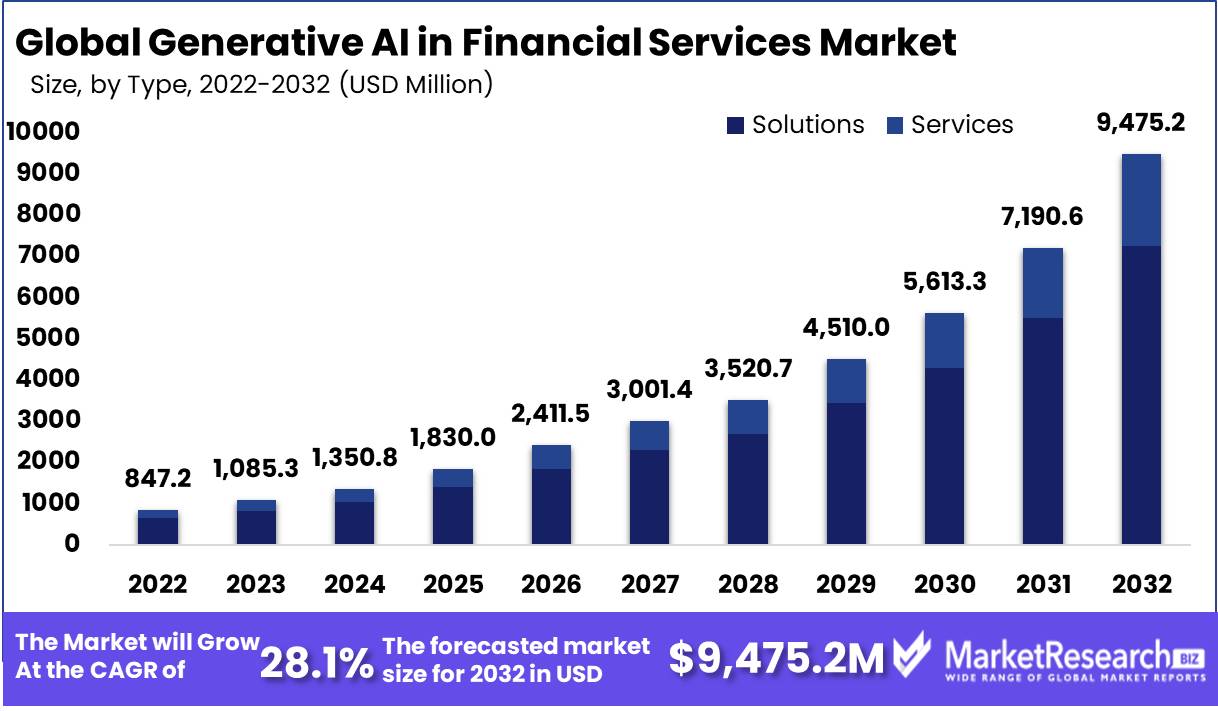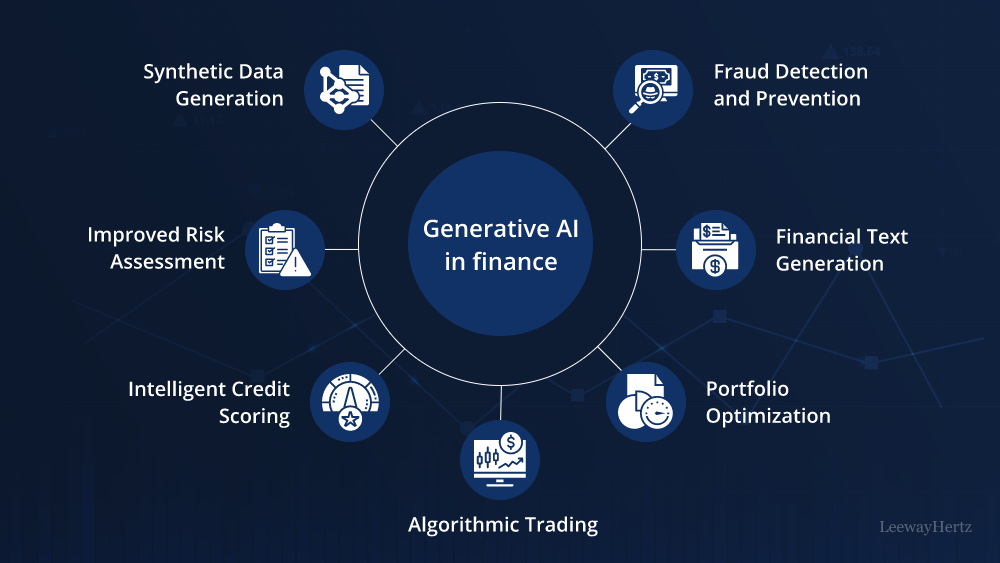Generative AI in the Banking Industry-How it could Save Banks Billions

In our rapidly evolving world, the integration of artificial intelligence technologies has become more crucial than ever. For banks to not only stay afloat but also thrive, embracing and implementing these technologies on a larger scale is imperative. On a global scale, McKinsey's projections indicate a staggering potential – AI technologies have the capacity to generate an astounding $1 trillion in additional value annually for the banking industry. This figure underscores the immense possibilities awaiting those who seize the potential of AI in the banking sector.
In this blog we’ll delve further on the impact of Generative AI in the banking industry
The Evolution of Technology in Banking

Over the span of several decades, banks have consistently embraced the forefront of technological innovations to redefine their interactions with customers. The 1960s witnessed the inception of ATMs, while the '70s introduced electronic, card-based payments. The 2000s marked the widespread adoption of 24/7 online banking, swiftly followed by the proliferation of mobile-based "banking on the go" in the 2010s. Later with a portfolio of many use cases, AI technologies held the potential to amplify revenue by finely tuning service personalization for both customers and employees.
And now, “In the banking industry, generative AI has the potential to improve on efficiencies already delivered by artificial intelligence by taking on lower-value tasks in risk management, such as required reporting, monitoring regulatory developments, and collecting data.” - McKinsey
What Generative AI Can Do?
-
Text generation: Generative AI can generate natural-sounding text in a variety of contexts, such as essays, stories, poems, and even computer code.
-
Language translation: Generative AI can translate text from one language to another with high accuracy.
-
Question-answering: Generative AI can answer questions based on a given context, such as a paragraph or a document.
-
Summarization: Generative AI can summarize long pieces of text into shorter, more concise summaries.
-
Sentiment analysis: Generative AI can analyze the sentiment of a given piece of text, determining whether it is positive, negative, or neutral.
-
Chatbot: Generative AI can be used as a chatbot to simulate human-like conversations with users, answering questions and providing assistance.
-
Text completion: It can predict the next word or phrase in a sentence or paragraph, making it useful for tasks such as autocomplete and autocorrect.
-
Text classification: It can classify text into different categories based on content, such as news articles, product reviews, or social media posts.
-
Language modelling: It can be fine-tuned to generate text in a specific style or domain, such as technical writing, academic research, or creative writing.
Transforming the Banking Experience
Source below
Generative AI seems to be everywhere, and the banking sector is already experiencing tangible repercussions of it: reduced expenditures, accelerated revenue expansion, and the reinforcement of potent contact center operations – a mere prelude to the transformative shifts underway. As per Accenture's 2023 Technology Vision survey, bank executives are gearing up to experiment with AI foundational models, including large language models, for diverse purposes such as data analysis (59%), process automation (58%), and customer support (57%).
The use of generative AI tools can help enhance the customer satisfaction, improve decision making and employee experience, and decrease the risks through better monitoring of fraud. Some use cases are:
-
Virtual Agent Support: A generative AI bot trained on proprietary knowledge can provide continuous technical support, empowering frontline workers with accurate, on-demand information. This augments customer interactions and validates offers, ensuring a seamless customer experience.
-
Real-time Monitoring and Alerts: The technology monitors industries and clients, alerting on semantic queries from public sources. It aids managers in swift information retrieval and synthesis from an extensive internal knowledge base.
-
Efficient Back-Office Operations: Customer-facing chatbots match user requests with service experts based on various criteria. Generative AI assistants enable instant access to product guides and policies, enhancing customer service while reducing back-office costs.
-
Agent Assists: With Generative AI assistants, employees can quickly access all relevant information like product guides and policies, enabling immediate resolution of customer requests.
-
Chatbot: Generative AI can be used as a chatbot to handle customer queries, update balances, initiate transfers, modify profiles, and address complex inquiries.
-
Summarization: Generative AI can summarize long pieces of text into shorter, more concise summaries.
-
Sentiment analysis: Generative AI can analyze the sentiment of a given piece of text, determining whether it is positive, negative, or neutral.
Banking Companies adopting Generative AI
Prominent enterprises are embracing Generative AI across their operations:
-
Swift: Recognizing the astounding potential of models like ChatGPT and GPT-4, Chalapathy Neti, the AI head at Swift, lauds their transformative impact, signalling an open stance towards these innovations.
-
ABN Amro: This Dutch bank is piloting generative AI to automate the summarization of interactions between staff and customers, enhancing efficiency and customer data gathering.
-
ING Bank: Mariana Gomez de la Villa, an innovation executive at ING Bank, revealed the bank's ongoing generative AI experimentation, focusing on code refactoring and client behavior analysis.
-
Goldman Sachs: Internal experimentation involves using generative AI to automate code generation and testing, and the bank has also fostered the startup "Louisa" from its incubator, utilizing AI for corporate social media functions.
-
Morgan Stanley: Exploring Generative AI, the bank deploys an OpenAI-powered chatbot to enhance the support provided by its extensive team of financial advisers, ensuring personalized client interactions. This assistant seamlessly integrates search and content creation, allowing advisers to swiftly locate and customize the pertinent information for each client's needs at any given time.
Looking Ahead: The Future of Banking with Generative AI
 Source Below
Source Below
MarketResearch.biz predicts a substantial surge in the global generative AI financial services market, estimating its value to skyrocket from USD 847.2 million in 2022 to a staggering USD 9,475.2 million by 2032, as revealed in their report.
In a broader context, the disruptive influence of Generative AI technologies can substantially enhance the banking sector's ability to achieve four pivotal outcomes: higher profits, the realization of personalized experiences on a grand scale, the creation of standout omnichannel interactions, and an acceleration of innovation cycles. To neglect the integration of AI as a cornerstone of strategy and operations—embracing an "AI-first" approach will expose banks to the competition overtaking them and customers drifting away. This risk is amplified by the ongoing trends:
⚡ Escalating Customer Demands: Amidst soaring digital banking adoption due to COVID-19, online and mobile banking usage has surged by 20-50%. Post-pandemic, up to 45% of consumers plan to cut back on in-person branch visits. This intensifying digital shift raises customer expectations, fuelled by benchmarks set by top consumer-internet companies. In a recent survey by Bain & Company, involving nearly 30,000 banking customers across 11 countries, those who acknowledged personalized banking experiences were more inclined to give their bank a higher Net Promoter Score (NPS).
🚀 AI Integration into Leading Institutions: A burgeoning number of leading financial institutions are progressively embracing advanced AI technologies. A staggering 60 percent of respondents in the financial services sector reveal their companies have assimilated at least one AI capability. Robotic process automation (36 percent), virtual assistants or conversational interfaces (32 percent), and machine learning techniques (25 percent) top the list of frequently employed AI technologies.
🏦 Tech Titans' Foray into Financial Services: Pioneering technology giants are extending their influence into financial services as a natural extension of their core business models. Armed with a substantial customer base, abundant data, innovation prowess (including AI), and access to low-cost capital, these titans are poised to reshape the landscape of financial services, leveraging their unique strengths to gain a competitive edge.
Konverso & Generative AI
 Our mission is to provide solutions that orchestrate generative AI with enterprise data knowledge and apps to create unparalleled value for our customers. Our solutions empower contact center agents to provide superior customer support.
Our mission is to provide solutions that orchestrate generative AI with enterprise data knowledge and apps to create unparalleled value for our customers. Our solutions empower contact center agents to provide superior customer support.
By prioritizing security and delivering practical applications, we strive to make AI an integral and beneficial part of enterprise workflows and processes such as employee experience (EX) and customer experience (CX).
Konverso provides value by helping enterprises leverage large language models (LLMs) while minimizing the associated risks. Konverso recognizes theimportance of privacy and security in enterprise environments and is actively working to bridge the gap between LLMs and banking enterprise readiness. By implementing robust privacy and security measures, Konverso aims to ensure that enterprises can benefit from LLM technology without compromising their sensitive data or exposing themselves to undue risk.
Now, the question isn’t whether generative AI will profoundly impact the banking industry, but how will they take advantage of this massive opportunity to capture value?
To learn more, book a demo now!
SOURCES: https://www.leewayhertz.com/generative-ai-in-finance-and-banking/#:~:text=prevent%20fraudulent%20activities.-,Take%20your%20banking%2Ffinance%20business%20to%20the%20next%20level%20with,and%20deliver%20exceptional%20customer%20experiences.&text=Generative%20AI%20can%20significantly%20enhance%20fraud%20detection%20algorithms%20and%20systems. https://www.forbes.com/sites/siladityaray/2023/03/22/goldman-is-reportedly-using-ai-to-write-code-as-banks-crack-down-on-chatgpt-use/?sh=2f9c39783300 https://www.thebanker.com/Generative-AI-could-save-banks-billions-1688025535#:~:text=The%20report%20also%20suggests%20that,of%20the%20industry's%20annual%20revenues. https://bankingblog.accenture.com/how-banks-scale-generative-ai-for-growth https://www.mckinsey.com/~/media/mckinsey/industries/financial%20services/our%20insights/building%20the%20ai%20bank%20of%20the%20future/building-the-ai-bank-of-the-future.pdf https://www.accenture.com/us-en/insights/technology/technology-trends-2023?c=acn_glb_technologyvisionewsroom_13446929&n=mrl_0323 https://marketresearch.biz/report/generative-ai-in-financial-services-market/ https://www.marketsandmarkets.com/industry-news/Banking-on-Innovation:-The-Disruptive-Power-of-Generative-AI https://www.forbes.com/sites/michaelabbott/2023/05/08/what-generative-ai-means-for-banking/amp/ https://hbr.org/2023/08/using-ai-to-build-stronger-connections-with-customers




